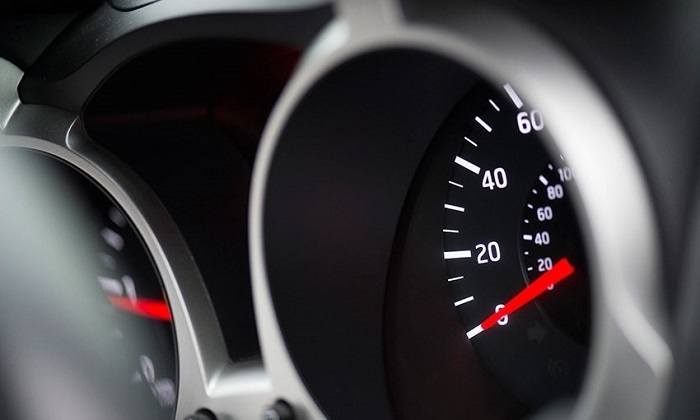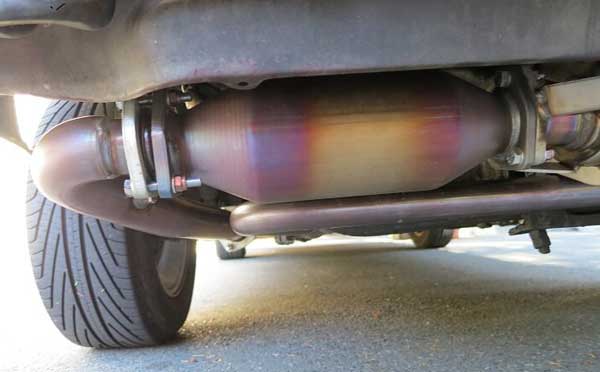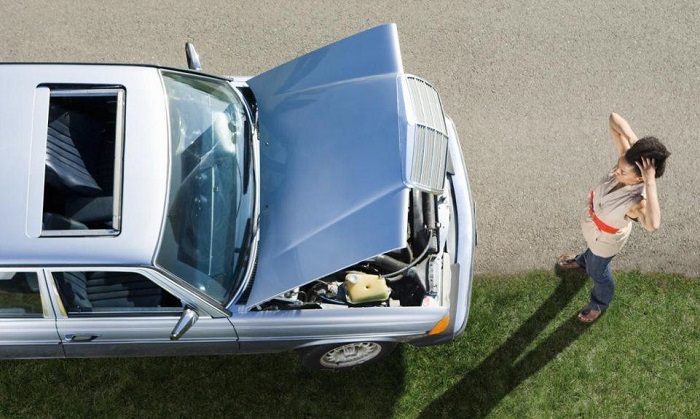by Joshua Thomas
Vehicles are designed to produce maximum power when accelerating to ensure the engine delivers the required speed. Hence, when your vehicle loses power when accelerating, this is something to worry about.
When many motorists notice their vehicle losing power as they accelerate, what first comes to mind is that they are running low on fuel. But while inefficient fuel is one of the main causes of power loss, it is not the only one.
There is a myriad of other things that can cause power loss, and they will range from issues with the engine and its components to an exhaust problem. In this piece, we explain some of the most common causes and also provide some possible solutions.

Although the causes of power loss when accelerating will depend on whether you have a gas or diesel engine, there are a few common ones that cut across the board. Here are some of these common causes of car power loss when driving.
Fuel injectors are what will supply fuel to the combustion chamber when your engine is running, and they are tasked with ensuring that the engine gets just the right dose of fuel for maximum power.
If you notice that your vehicle loses power when accelerating, a faulty or bad fuel injector is one of the probable causes because if the engine is not getting the right dose of fuel, it will not deliver the power required.
Since the fuel injector is controlled by the vehicle's computer, it is also worth noting that the fuel injector might sometimes malfunction because the computer has issues. Hence, a quick scan can be very useful.
Bad spark plugs are a common cause of power loss when accelerating, and this is more so for those that drive vehicles with gas engines.
Spark plugs are a crucial component of the vehicle's internal combustion system. Hence, when they are not working well, there will be adverse consequences with power loss being one of the common ones.
Spark plugs are responsible for transmitting an electrical signal to the combustion chamber from the ignition coils. When they are faulty, the performance of the engine diminishes greatly, and you will not get adequate power when accelerating.
A strong cylinder compression is vital for the engine to generate adequate power. Hence, if your vehicle loses power when accelerating, then you might have a case of low-level cylinder compression.
This issue is common for both gas and diesel-powered vehicles, and so it is one of the issues that you need to check when you have low power issues regardless of the vehicle type and model you drive.
Low-level compression is often caused by issues like bad seals, and it will make it hard for the vehicle to produce enough power as you accelerate.
The fuel pump works with the fuel injector to ensure that enough fuel is delivered to the combustion chamber when you accelerate. If the fuel pump is faulty or is just not working correctly, then you can expect the car to lose power when you accelerate.
It is also worth noting that besides pumping fuel to the combustion chamber, the fuel pump will regulate the fuel’s pressure as it is transferred.
When the fuel pump is faulty, you will get an inconsistent and inadequate supply of fuel no matter how hard you accelerate, which then causes poor engine performance and power loss.

Your vehicle's engine needs to be able to get rid of the exhaust fumes generated when fuel is burnt, and this is where the exhaust pipe comes in as this is its main function.
If the exhaust pipe is clogged or damaged, it cannot get rid of the fumes generated during combustion, which in turn affects the functioning of the engine significantly.
When the engine’s efficiency takes a hit, you are likely to suffer power loss when accelerating and hence the need to fix the exhaust pipe immediately.
The ignition coil is tasked with converting the voltage from the battery into the higher voltage required to ignite the air and fuel mixture.
When you have a faulty ignition coil, the voltage conversion will not happen, and hence the fuel mixture will not be ignited adequately, which translates to a loss of power.
If the ignition coil issue is left unresolved for long, the power generated may diminish to a point that the vehicle might find it hard to accelerate, and so it is vital to fix the ignition coils immediately you notice any problem
A damaged air filter might not sound like the biggest issue that you can have in your vehicle, but what you might not know is that it can also lead to power loss when accelerating.
For the car to generate power, it has to burn a mixture of air and fuel, hence both need to be supplied in the right volume and condition.
While the fuel pump delivers the fuel to the combustion chamber, this function goes to the air filter when it comes to air supply. The filter will filter out debris and other things like bugs from the air before it gets to the combustion chamber to ensure efficient combustion.
When the air filter is damaged, it does not supply enough or clean air to the chamber, which then decreases the power generated by the engine as it will not be getting the required air and fuel mixture.
For both gas and diesel engine vehicles, a problem with the oxygen sensors can also lead to power loss when accelerating. When these sensors are not working well, the air to fuel mixture will not be as precise as it is required, which then affects the power the engine can deliver.
The oxygen sensor will be typically placed in the exhaust stream, and its main role is to ensure the fuel injection system and engine timing work correctly.
Any malfunction in this critical component means that it will not be able to correct and send accurate information to the electronic control module. And one of the negative effects of this is poor engine performance.

Knowing the cause of the power loss is the first step in solving the problem. The next one will be to do some important checks in your vehicle, which in many cases should be enough to solve the problem. Here are some of the checks that you will need to do.
In some instances, the power loss when accelerating will occur just after routine maintenance or a trip to the auto repair shop to have a specific problem fix.
If you notice the power loss after having some work done on your car, the first check and most important one will be to check the connections and make sure everything was connected properly.
Check all the cables and hoses to makes sure they are tight enough and in the correct place. Also, make sure that all nuts and bolts are tight enough, and if you also changed the fluid, make sure the level is right and that you have the correct fluid type.
Tires are probably what many motorists will check most in their vehicles, but some will easily forget about them and only check them when they have an issue like a flat tire.
However, if you are having power loss issues as you accelerate, you need to check your tire's inflation. Underinflated tires will often drag a little, which can appear like a slight drop in power when accelerating. And so simply checking and inflating the tires can be an easy fix.
Read More: Tire Pressure Sensor Fault
Whether the check engine light is on or not, it is still a great idea to scan your vehicle’s computer when you are having issues with power loss when accelerating.
Scanning will help you establish whether there is a pending error code that needs clearing or indicate an underlying issue that might be causing the power loss. A simple scan will reveal a lot of information about the vehicle, and hence making it easy to fix any problems.
Another check you need to make entails giving different engine components a thorough inspection. Starting with a visual inspection, you need to check parts like the spark plugs for wear and damage.
Other components that need a thorough inspection include the ignition coil, fuel injector, fuel pump, air filter, ignition timing, and the exhaust pipe.
Checking and inspecting these different components will help you narrow down the underlying issue causing the power loss something that you might not always achieve with a computer scan.
Note: Some of the underlying issues that often lead to power loss when accelerating are easy to fix on your own at home and will only take a few minutes. However, some like replacing the ignition coil or fuel injector can be complicated and are better left to a professional mechanic.
A vehicle that loses power when accelerating can be disappointing as it means your vehicle will not provide the speed you need. This can make your drives boring and can also put your life and other road users in significant danger.
But, as dangerous and annoying as this problem might be, the good news is that it is often fairly easy to fix as you only need to first identify the underlying cause. And these causes will range from faulty components like spark plug and fuel injectors to a clogged exhaust pipe.
Regardless of what brings about the issue, the fact remains you need to fix it immediately to ensure the vehicle remains safe to drive. For the motorists with adequate mechanic skills, most of the issues will be easy to fix on your own at home, but it is still good to have the car checked by a professional.
Sources
 |
 |
 |
 |

About Joshua Thomas
Joshua Thomas just simply loves cars and willing to work on them whenever there's chance... sometimes for free.
He started CarCareTotal back in 2017 from the advices of total strangers who witnessed his amazing skills in car repairs here and there.
His goal with this creation is to help car owners better learn how to maintain and repair their cars; as such, the site would cover alot of areas: troubleshooting, product recommendations, tips & tricks.
Joshua received Bachelor of Science in Mechanical Engineering at San Diego State University.